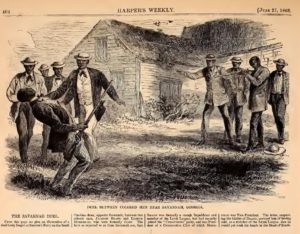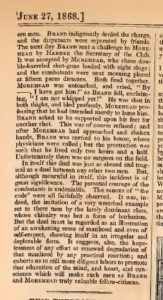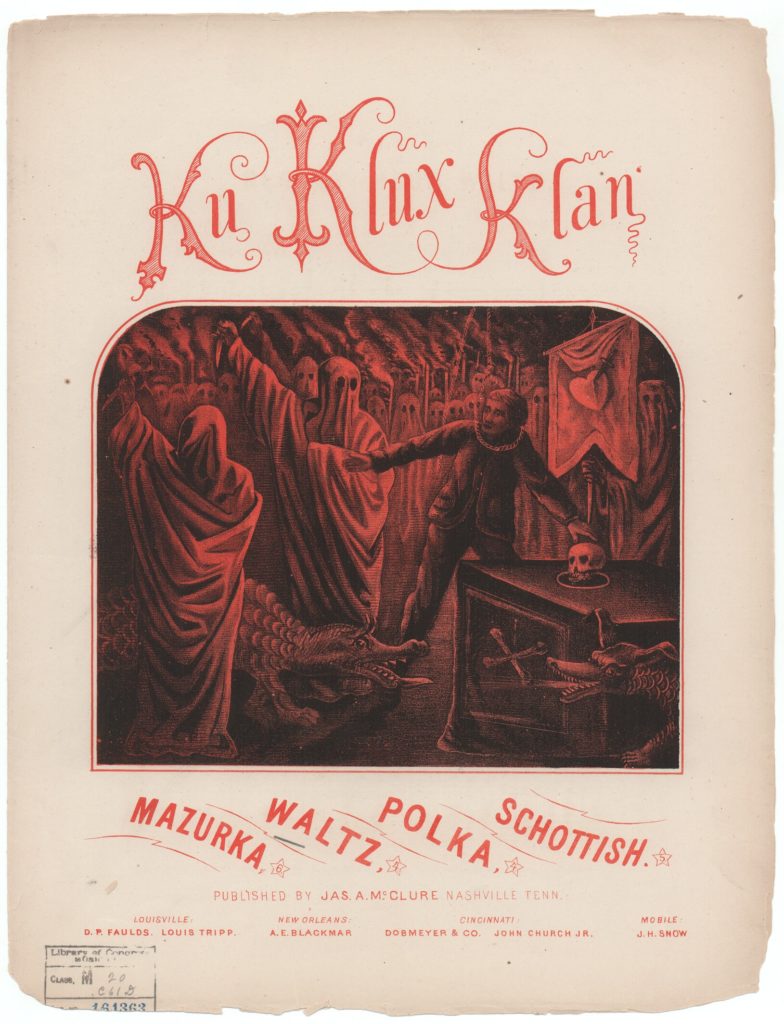In early June 1868 two black men fought a duel in South Carolina; one of the men was mortally wounded. A northern editorial thought that duels in general were absurd, tragic, and barbaric, but saw this particular duel as a step in the right direction. It revealed “an awakening sense of manhood and even of self-respect.” From the June 27, 1868 issue of Harper’s Weekly (at the Internet Archives Harper’s pages 404-405):
________________________________
Social scientists might discourage reading too much into one isolated duel; on the other hand, there was increasing evidence that throughout the South the Ku Klux Klan was killing black people and whites sympathetic to greater rights for the freedmen.
On page 403 in the same June 27th issue Harper’s commented on the murder of G.W. Dill and two negroes at Camden, South Carolina. G.W. Dill had been elected as a Republican member of the next South Carolina legislature:
… a party of the Ku-Klux Klan went to the house of Mr. DILL and murdered two or three persons who were guilty of being colored men and non-believers in the Ku-Klux Democracy.
“Very well,” exclaims some disciple of VALLANDIGHAM and SEYMOUR; “you are responsible for it.” “How?” “By exciting hatred of race with your confounded equal rights and suffrage.” “And how would you have prevented it?” “By putting the nigger in his place, and keeping him there.”
Such a conversation is a free but a remarkably accurate rendering of the speech of the Indiana Senator, candidate, etc. [Thomas A. Hendricks, a candidate for the 1868 Democrat presidential nomination, according to Harper’s], who said that in his judgment “the people” of the late rebel States meant the late rebel class, and that they alone were rightly invested with political power. Let them do as they choose with the rest of the population. Such a plan would not, of course, excite any hatred of race. …



